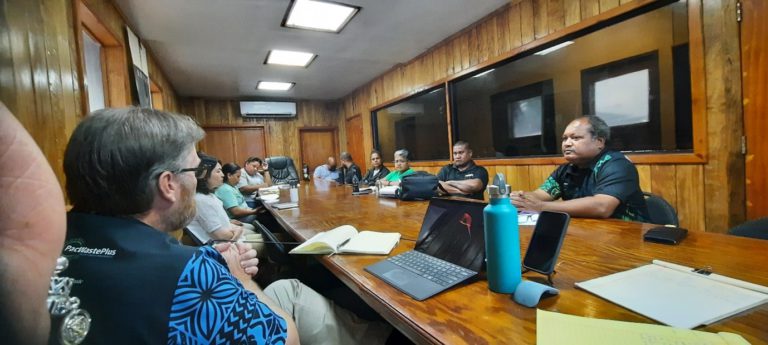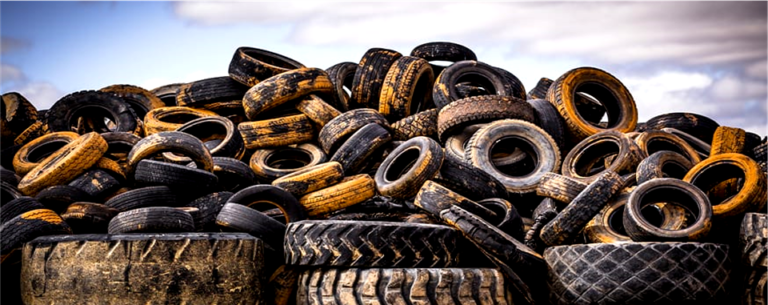Country Project
Palau
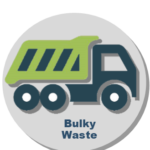
IMPROVING THE MANAGEMENT OF END-OF-LIFE TYRES (BULKY WASTE)
IMPROVING THE MANAGEMENT OF END-OF-LIFE TYRES (BULKY WASTE)
The Palau project implemented by the Solid Waste Management Division of the Bureau of Public Works and the Environment Quality Protection Board (EQPB) seeks to introduce an effective management programme for End-of-Life Tyres (EOLT). The project will establish a legal framework to effectively regulate tyre importation and establish a national standard to ensure long-lasting tyres are imported for use in the country, as well as provide practical uses for the EOLT currently stockpiled.
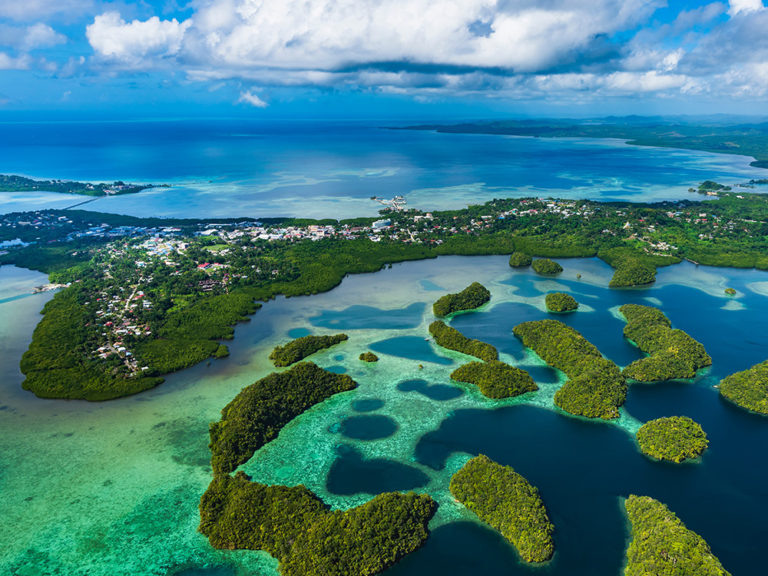
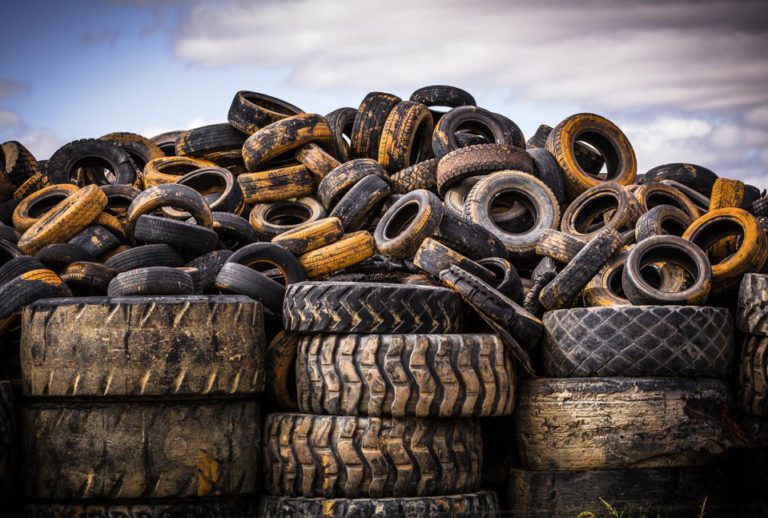
Project Description
Current Situation
End of Life Tyres are expensive to send overseas for environmentally sound management and there are no in-country reuse options for End-of-Life Tyres in Palau. This has resulted in illegal dumping and stockpile of EOLT in the country. An audit of Palau’s waste stream in 2019, identified 13,739m³ of EOLT stockpiled in the country which included 100m³ of shredded tyres.
What is the Palau project About?
Palau will utilise PacWastePlus investment to establish a recovery programme in Palau to process End-of-Life Tyres EOLT given the high cost of exporting EOLT for Environmental sound management. Activities will include:
• Design of a waste management system that will support local authorities in the management of EOLT in Palau.
• Establish a national tyre importation standard and determine an environmentally sound management system for EOLT in Palau.
• Introduction of a legal framework to allow for the collection and repurposing of End- of -Life tyres
• Facilitate training for local officers to build in-country capacity in the operationalisation of the EOLT management system designed and enforcement of the new legal framework.
Future Situation
Palau seeks to have an effective and self-funding solution for the collection and repurposing of End-Of-Life tyres in the country.
Latest news & updates
Browse through all the news & updates related to this project
Project resources
Browse through all the resources published from this project.
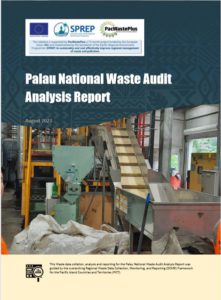
Research Report
Palau National Waste Audit Analysis Report
This Waste data collation, analysis and reporting for the Palau National Waste Audit Analysis Report was guided by the overarching Regional Waste Data Collection, Monitoring, and Reporting (DCMR) Framework for the Pacific Island Countries and Territories (PICT).
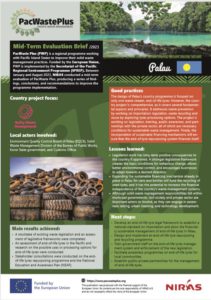
General
Mid-Term Evaluation PacWaste Plus Programme – Palau Project Evaluation Brief
The Pacific – European Union Waste Management (PacWaste Plus) Programme has completed an external Mid-Term Evaluation. The evaluators from NIRAS International Consulting have produced a suite of products highlighting the Mid-Term Evaluation findings. This country brief highlights the mid-term review findings for the Palau PacWaste Plus project.
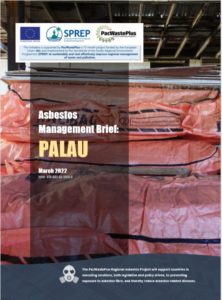
Factsheet
Asbestos Management Brief: PALAU
The PacWastePlus Regional Asbestos Project will support countries in executing solutions, both legislative and policy-driven, to prevent exposure to asbestos fibre, and thereby reduce asbestos-related diseases. This document provides guidance for Palau to progress work on the development and implementation of a National ACM ban with this resource providing background information, identifying policy and legislative options available.


